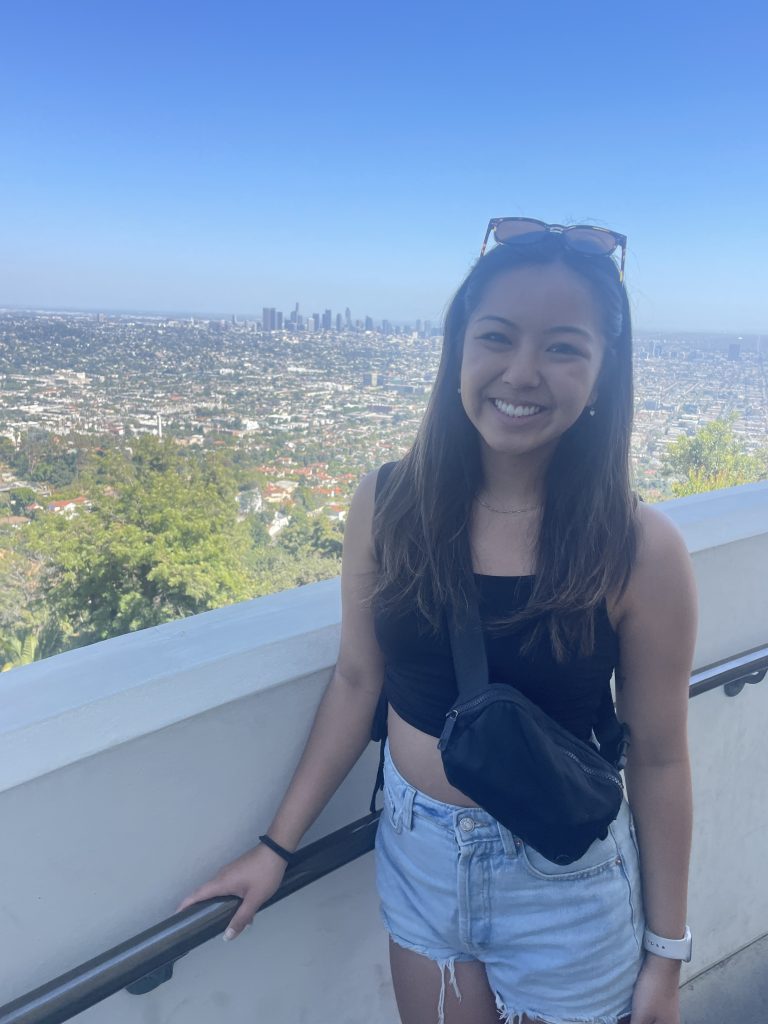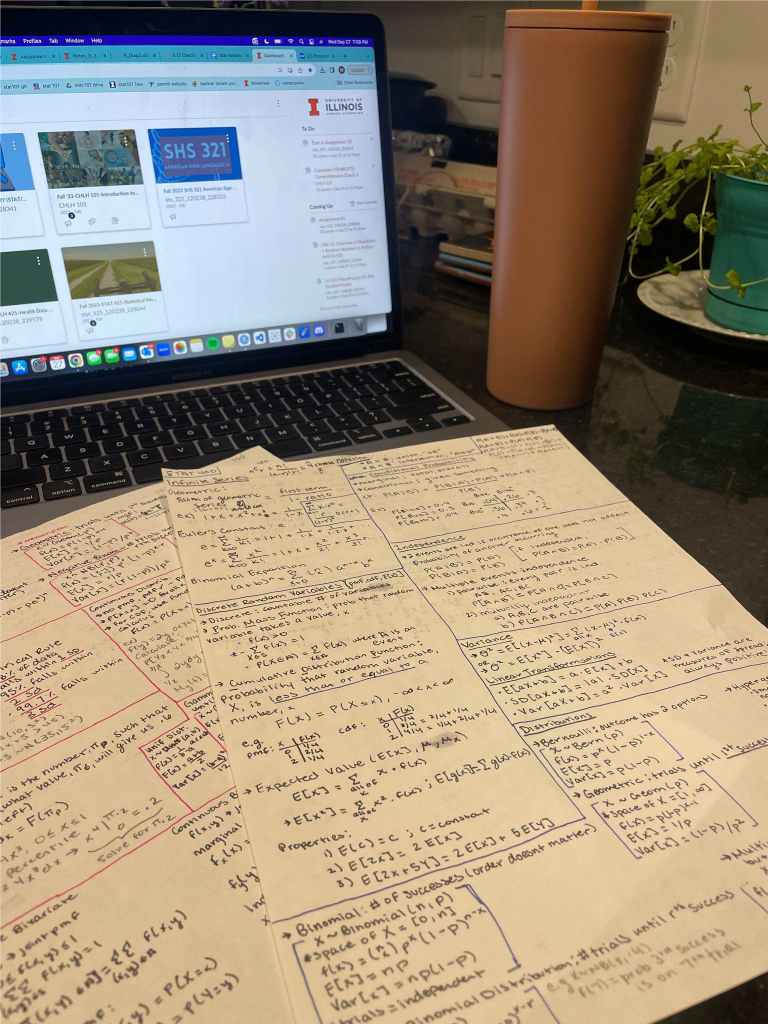Junior Mia Paelmo, majoring in Statistics and minoring in CS, shares some tips for academic success.

We’re a little over a month into the school year and the first round of midterms are most likely right around the corner. Looking back to my first year, I remember being overwhelmed this time of the semester. Your first big exam or project at college, and you want to do well. But where do you start? What material should you know? How early should you start studying? All of these questions have probably started piling on and suddenly you are stressed to the max. Don’t worry!
Don’t stress, everything will be okay. As a seasoned college student, I’m here to help and give you the best studying advice I can offer based on my personal experiences.
1. Making a ‘Cheat Sheet’

This is a study tip I swear and live by. I’ve learned that over the semester I accumulate a lot of notes, and most of the time the content of my notes are disorganized and shuffled around. When I begin studying for exams and quizzes I like to look at my notes and pick out the big topics (if your professor provides you with an exam topic page, that’s even better!). After deciding on the important topics, I take a blank piece of paper and rewrite the key points for each topic. By the end, you should have an organized page with weeks’ worth of important material. I like this study tip because not only does it help me organize my thoughts, but it also forces me to go back, look at the class content, and understand things I probably didn’t the first time around. The best part about this tip is that in the past, classes like STAT 400 and STAT 410 have encouraged this type of studying and professors have allowed students to use their formula sheets on exams!
2. Redo Homeworks and Quizzes
I think one of the biggest obstacles I had trouble getting over when I was a first year was the exam format. Sometimes, you will get professors who push out a lot of exam material (past/practice exams, videos, topic list, etc.) and other times you will have professors who are pretty vague about exams and do not give much direction on how the exams will be formatted. For me, these were the classes I dreaded studying for since it was up to me to decide what material I should focus on and spend time practicing. In these desperate times, I advise you to turn to past homework assignments or quizzes (if you have any).
Professors usually create their assignments for the class, in terms of format and the type of problems they ask, and this is a big help when it comes to studying. It gives you an idea of what the professor is looking for and what they want you to practice. Use this to guide your studying and decide what topics got the most attention in homeworks/quizzes.
Another bonus for this study tip, exams cover weeks worth of material, going back and redoing the homeworks help jog your memory and give you extra practice.
3. Study Places
The ‘where’ to study is an important question; I believe a good mindset and environment is key to successful studying. When I was a freshman I was never able to study in my dorm. I felt it was too tempting that my bed was next to me and there was too much stuff around to distract me. I am a big advocate for studying far from the space you relax in (at least if you’re planning to study for a few hours). If you want to stay close to home most dorms have study spaces in the same building or close to the building, and I utilized those spaces a lot my freshman year. However, to this day I still love studying at the libraries on campus. My personal favorite places to study are the Chemistry Library in Noyes, ACES Library, and the Main Library. I highly recommend reserving study rooms in any of the University libraries, especially if you plan on studying with a group or just want privacy to write notes on the board or talk aloud without disturbing anyone.

To conclude, I know exam week is stressful and deciding how and when to study can be super overwhelming, but it’s nothing you can’t handle! I hope the tips I provided that have helped me in the past ease a bit of that stress and give you some guidance on how to form your own study habits. Good luck!!

